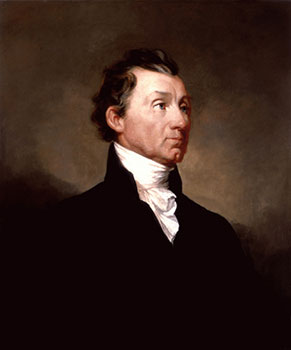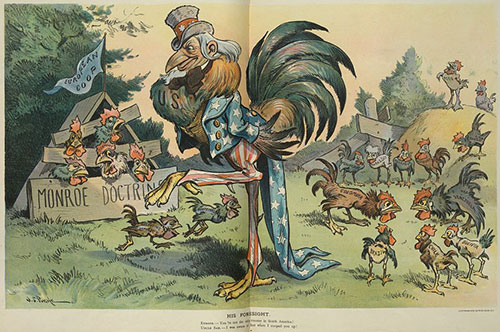Learn
The Era of Good Feelings
The War of 1812 marked the last major conflict between the United States and a European nation for nearly 90 years. While the war itself was not a success, the surge of nationalismpride in one's country that it sparked in the American public led to a period of expansion and prosperity. James Monroe was elected in 1816. During his term in office, nationalism grew and ushered in this period, which was called the Era of Good Feelings. This period would last a very short time and was marked by the dominance of one political party. Read The Era of Good Feelings and the Two-Party System to learn more.

Shortly after, the US experienced an economic depression, or severe economic downturn, with the Panic of 1819. To learn more about this time, read the introduction and section "The Panic of 1819" from The Growth of Political Factionalism and Sectionalism.
The Monroe Doctrine
During the early 19th century, almost every important colony in Latin America (excluding Mexico) gained independence from their European parent countries. However, many of these powerful European monarchies didn't want new representative governments forming in their old colonies.
After the War of 1812, the United States had been independent from Britain for 25 years and had broken its emotional and political ties to Europe. While European trading was vitally important to American commerce, the US wanted to maintain this separation and independence on our side of the Atlantic.
In 1823, President Monroe issued the annual State of the Union Address to Congress in which he outlined the principles for a new foreign policy that has become known as the Monroe Doctrine. This doctrine established the US as the "protector" of the Western Hemisphere and vowed to keep the US out of European affairs. Monroe said he "would consider any attempt on their part to extend their system to any portion of this [Western] hemisphere dangerous to our peace and safety." In other words, Monroe was warning European countries that if they interfered in the affairs of any independent nation in North or South America, they should expect a strong response from the United States.
Although not viewed as important at the time, this doctrine and its principles have had a lasting impact on US foreign policy.
Key points of the Monroe Doctrine included:
- European powers should no longer interfere with or attempt to colonize the newly independent nations of the Americas
- The US planned to avoid getting involved in internal affairs of European nations
- The US recognized the existing colonies and states in the Western Hemisphere
With the implementation of the Monroe Doctrine, the United States was able to focus on westward expansion and economic growth.
